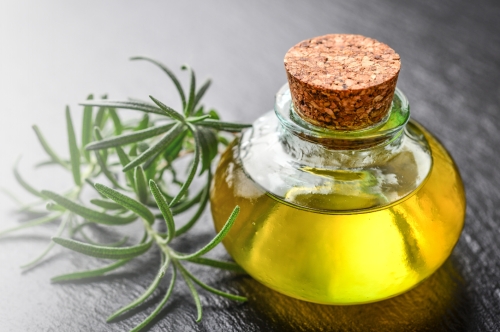What Are Flavouring Agents? Types, Uses & Industry Guide

What are Flavouring Agents? Types, Uses, Examples & Industry Insights
Flavouring agents are essential substances added to food and beverages to enhance, modify, or mask their taste, aroma, or texture. These agents can be derived from natural sources or created synthetically, and they play a pivotal role in the sensory appeal of countless products we consume daily. From the zesty tang in your lemonade to the comforting aroma of vanilla in baked goods, flavouring agents are behind the scenes, transforming ordinary recipes into memorable culinary experiences.
What Are Flavouring Agents? [Expanded & Expert Overview]
Flavouring agents are compounds—either natural, nature-identical, or artificial—used to impart, intensify, or balance the taste and aroma of foods, drinks, pharmaceuticals, and even oral care products. They are available in various forms, including liquids, powders, encapsulated granules, and extracts, allowing for versatile application across industries.
Natural flavouring agents are sourced from plants, fruits, vegetables, herbs, and spices, while artificial flavourings are synthesized to mimic or create new taste profiles. For example, the sweet, creamy note in many vanilla-flavored products often comes from vanillin, which can be extracted from vanilla beans or produced synthetically.
Flavouring agents are not limited to food and beverages—they are also crucial in pharmaceuticals (to mask bitterness in medicines), oral care (to improve toothpaste palatability), and nutraceuticals. The global flavouring agents market is projected to reach $20.1 billion by 2027, reflecting their growing importance in product innovation and consumer satisfaction.
Explore our full range of natural fragrances, flavours, and aroma chemicals at affordable prices to discover how flavouring agents can elevate your products.
Types of Flavouring Agents: Comprehensive Guide
Understanding the different types of flavouring agents is key to selecting the right one for your application. Here’s a detailed breakdown:
1. Natural Flavouring Agents
Derived directly from natural sources, these agents include extracts, essential oils, and concentrates from fruits, vegetables, herbs, and spices. Examples: vanilla extract, cinnamon, ginger, citrus oils.
- Application Example: Best and Pure Essential Oils Manufacturers supply natural oils for food, beverage, and wellness products.
2. Artificial Flavouring Agents
These are chemically synthesized compounds designed to replicate or create unique flavours not found in nature. They are cost-effective and offer consistent quality. Example: vanillin (synthetic vanilla), ethyl maltol.
- Industry Insight: Artificial agents are widely used in candies, sodas, and processed snacks for their stability and intensity.
3. Nature-Identical Flavouring Agents
Chemically synthesized to be identical to naturally occurring compounds, these agents bridge the gap between natural and artificial. Examples: linalool (lavender, citrus), coumarin (cinnamon, vanilla).
- Expert Tip: Nature-identical agents are often preferred for their safety, consistency, and cost-effectiveness.
4. Processed Flavouring Agents
Created by processing natural substances—such as roasting, fermenting, or smoking—to develop new or intensified flavours. Examples: smoked flavours, roasted coffee, fermented soy.
- Related Product: Food Flavour Manufacturers | Best Flavours for Food offer a wide variety of processed and blended flavours for diverse applications.
5. Masking Agents
Used to cover up undesirable tastes or odours, especially in pharmaceuticals and functional foods. Examples: citric acid, salt, menthol.
- Application: Masking agents are vital in oral care and nutraceuticals to improve consumer compliance.
6. Sweeteners
Substances that provide or enhance sweetness, including both caloric (sugar, honey) and non-caloric (aspartame, saccharin) options.
- See Also: Mint Products For Refreshing & Pure Mint Experience often combine sweeteners and minty notes for oral care and confectionery.
How Are Flavouring Agents Used in the Food Industry?
Flavouring agents are indispensable in food manufacturing, not only for taste but also for product differentiation and consumer appeal. Here’s how they are utilized:
Enhancing Taste and Aroma
Flavouring agents are added to foods and beverages to boost their sensory appeal. For instance, vanilla extract in cakes or fruit flavours in yogurts.
- Example: APPLE | NOREX is used to impart a fresh, natural apple taste to baked goods and beverages.
Masking Unpleasant Notes
Certain products, especially those with added vitamins, minerals, or functional ingredients, may have off-notes. Masking agents help cover these, making products more palatable.
Creating Unique and Signature Flavours
Manufacturers blend different flavouring agents to create innovative and proprietary flavour profiles, such as cola, bubble gum, or exotic fruit blends.
- Discover More: Aroma Chemicals Manufactures and Suppliers provide the building blocks for custom flavour creation.
Standardizing Flavour Across Batches
Consistency is crucial in mass production. Flavouring agents ensure that every batch tastes the same, building brand trust and loyalty.
Extending Shelf Life
Some flavouring agents help mask or prevent the development of off-flavours during storage, thereby extending product shelf life.
Regulatory Compliance
All flavouring agents used in food must comply with local and international food safety standards, such as FSSAI in India or FDA in the US.
Real-World Examples of Flavouring Agents in Action
- Beverages: Citrus oils and berry flavours in soft drinks and energy drinks.
- Bakery: Vanilla, almond, and caramel flavours in cakes, cookies, and pastries.
- Confectionery: Fruit, mint, and chocolate flavours in candies and chewing gum.
- Dairy: Strawberry, mango, and chocolate in yogurts and ice creams.
- Pharmaceuticals: Mint and orange flavours in syrups and chewable tablets.
Browse our full product range of flavours and fragrances to see how Norex supports diverse industry needs.
Flavouring Agents vs. Fragrances: What’s the Difference?
While both flavouring agents and fragrances enhance sensory experiences, flavouring agents are specifically formulated for ingestion, focusing on taste and aroma. Fragrances, on the other hand, are used in non-food products like perfumes, air fresheners, and personal care items.
- Learn more about World Class Fragrances and their applications beyond food.
Safety, Regulations, and Quality Control
Ensuring the safety and quality of flavouring agents is paramount. Regulatory bodies like FSSAI (India), FDA (USA), and EFSA (Europe) set strict guidelines for permissible substances, usage levels, and labelling. Manufacturers like Norex adhere to international standards, undergo regular audits, and maintain certifications to guarantee product safety.
- See our Certifications for more on Norex’s commitment to quality and compliance.
Expert Insights: Trends and Innovations in Flavouring Agents
- Clean Label Movement: Growing demand for natural, non-GMO, and allergen-free flavouring agents.
- Functional Flavours: Flavours that offer health benefits, such as immunity-boosting or energy-enhancing properties.
- Customization: Brands increasingly seek bespoke flavour profiles to stand out in crowded markets.
- Sustainability: Sourcing and producing flavouring agents with minimal environmental impact is a rising priority.
Frequently Asked Questions (FAQ)
What is the main purpose of flavouring agents in food?
Flavouring agents are primarily used to enhance or modify the taste and aroma of food and beverages, making them more appealing and enjoyable for consumers.
Are natural flavouring agents healthier than artificial ones?
Not necessarily. Both natural and artificial flavouring agents are subject to safety assessments. The health impact depends on the specific compound and its source. Always check ingredient labels and opt for reputable suppliers.
How are flavouring agents made?
Natural agents are extracted from plants, fruits, or animal products, while artificial and nature-identical agents are synthesized in laboratories to mimic or replicate natural flavours.
Can flavouring agents cause allergies?
Allergic reactions are rare but possible. Most agents undergo rigorous testing. If you have known sensitivities, consult product labels or manufacturers.
What regulations govern the use of flavouring agents?
In India, the Food Safety and Standards Authority of India (FSSAI) regulates the use of flavouring agents. Internationally, bodies like the FDA and EFSA set guidelines for safety and permissible usage.
How do I choose the right flavouring agent for my product?
Consider your application, desired flavour profile, regulatory requirements, and target market preferences. Consulting with a flavour expert or supplier can help you make the best choice.
What are some popular flavour trends in 2024?
- Exotic fruit blends (dragonfruit, lychee, kokum)
- Botanical and herbal notes (lemongrass, cardamom, mint)
- Indulgent dessert flavours (butterscotch, chocolate bourbon, caramel butter)
- Functional and health-oriented flavours (ginger-lemon, turmeric, green tea)
Actionable Framework: How to Select the Best Flavouring Agent
- Define Your Application: Is it for food, beverage, pharma, or oral care?
- Identify Desired Flavour Profile: Sweet, savory, fruity, herbal, etc.
- Check Regulatory Compliance: Ensure the agent is approved for your market.
- Evaluate Source and Quality: Prefer certified suppliers with transparent sourcing.
- Test and Optimize: Conduct sensory trials to fine-tune dosage and impact.
Related Resources
- News & Events | NOREX: Stay updated on flavour trends and innovations.
- Expertise | NOREX: Learn about our R&D and flavour creation process.
- Contact | NOREX: Get in touch for custom flavour solutions.
Conclusion
Flavouring agents are the unsung heroes of the food and beverage industry, transforming products with taste, aroma, and innovation. Whether you’re a manufacturer, chef, or curious consumer, understanding the types, uses, and trends in flavouring agents empowers you to make informed choices and create memorable experiences.
Ready to elevate your products? Explore our full range of flavours, fragrances, and aroma chemicals or contact our team for expert guidance.












